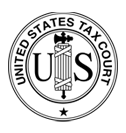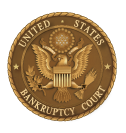Navigating Financial Turbulence: How Bankruptcy Can Be a Lifeline Among Record U.S. Household Debt
In recent years, Americans have found themselves struggling with unprecedented levels of debt. Huge mortgage payments, soaring car payments, and credit card debt have left many overwhelmed and feeling financially trapped. if you’re contemplating filing for bankruptcy, you’re not alone. Understanding the bankruptcy system can help provide a path to financial stability- a crucial first step.
U. S. Debt: An Overview
Credit Card Debt
Total US credit card debt has reached a reported $1 trillion. This record high debt burden is compounded by higher interest rates and goods inflation making it impossible for consumers to pay down balances.
The average American household now carries a credit card balance of over $8000, with interest rates usually exceeding 20%. For many consumers, this means that they are paying a significant portion of their income towards interest payments and not reducing their overall credit card balance.
Mortgage Payments and Rents
Over the last few years, the housing market has seen substantial increase in prices, mortgage payments, and rents. Many homeowners and renters are now paying 40% of their income towards their mortgage or rent. The average monthly mortgage payment is now $2000 per month nationwide.
Car Payments
The cost of owning a vehicle has also dramatically increased. Average car payments now exceed $600.00 per month. Americans are spending more on their cars than ever before. This is compounded by higher interest rates, making it difficult to stay on top of car payments without sacrificing other essential spending.
The Role of Bankruptcy
For those drowning in debt, bankruptcy is a powerful tool for resetting one’s financial landscape. Here’s how:
- Immediate Relief Through the Automatic Stay: Filing for bankruptcy triggers an automatic stay which halts collection actions against you. No more harassing phone calls, wage garnishments, foreclosure proceedings, or car repossessions. The Automatic Stay provides immediate relief while you discharge your unsecured debt or reorganize your debt under chapter 13.
- Discharge of Unsecured Debt: One of the most significant benefits of bankruptcy is the discharge of unsecured debts – usually everything but car, mortgage, and student loan debt. Chapter 7 will wipe out unsecured debts, giving you a fresh start. While not all debts are dischargeable in Chapter 7, by eliminating a substantial portion of your debt, you can significantly reduce the financial stress.
- Structured Repayment Plans: If you choose chapter 13 bankruptcy, you will enter a court approved repayment plan on your debt. This plan consolidates your debts into one manageable monthly payment over three to five years, usually significantly reducing the total amount of debt. Chapter 13 will also stop a mortgage foreclosure and allow you to catch up back mortgage payments thereby saving your home.
- Asset Protection: Contrary to popular belief, filing for bankruptcy doesn’t mean you lose everything, or anything, in most cases. State and federal bankruptcy exemptions allow you to keep essential assets like your home, car, and retirement accounts.
Is Bankruptcy Right for You?
While bankruptcy offers a lifeline, it’s not a decision to be taken lightly. It is essential to weigh the pros and cons and consider how it will impact your financial future. By consulting with one of our expert bankruptcy attorneys, we will provide you with personalized advice tailored to your specific circumstances, helping you make an informed decision.
Record levels of debt are putting immense pressure on American households, but there is hope. Bankruptcy offers a fresh start, relieving you of the burden of insurmountable debt providing a pathway to financial freedom. If you find yourself overwhelmed by credit card debt, high mortgage payments, or excessive car payments, exploring bankruptcy as an option could be your first step towards regaining control of your financial future. Remember, seeking help is a sign of strength, not failure, and taking proactive steps today can lead to a brighter, more secure tomorrow.








